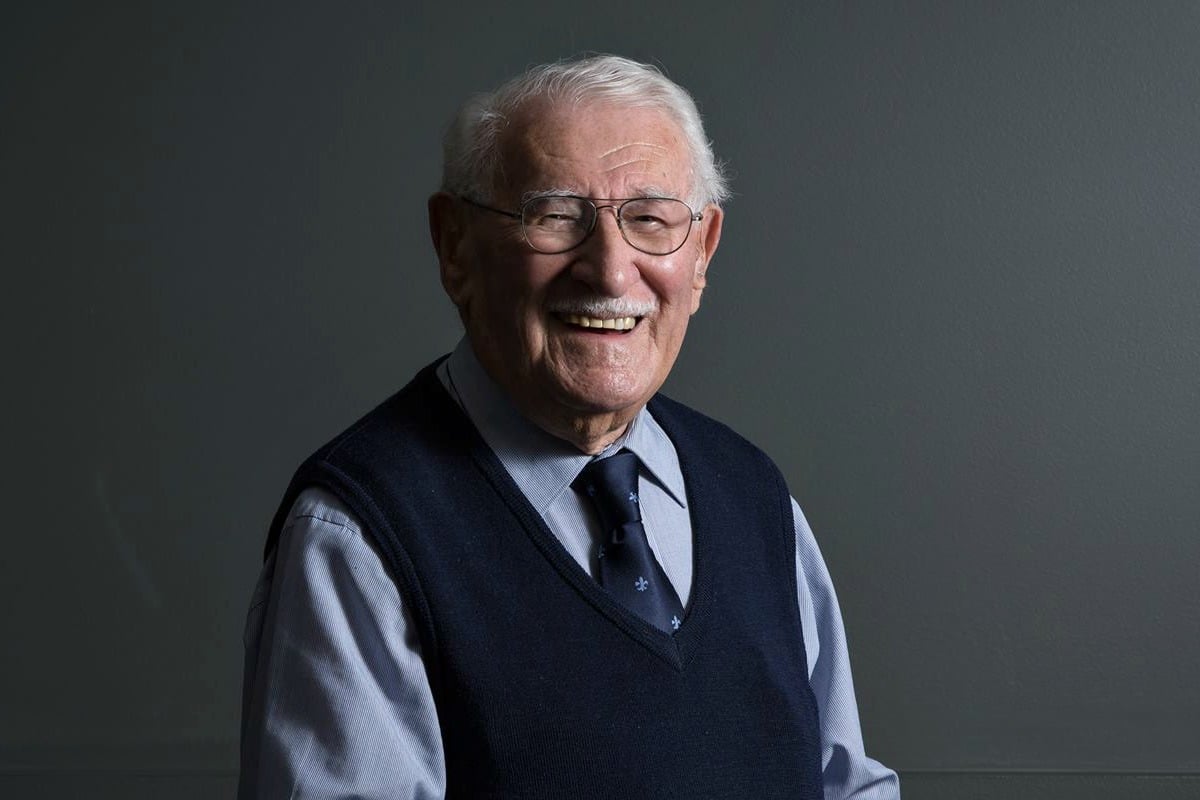
Today, January 28, 2025, marks 80 years since the liberation of Auschwitz.
The below story was originally published in 2019, and has been updated to remember the late Holocaust survivor Eddie Jaku's story.
In the early hours of the morning, Eddie Jaku would make his way home from his shift at a Brussels cigarette factory; an hour-long walk through the pitch-black streets, otherwise empty due to the wartime curfew. As a Jewish man in Nazi-occupied Belgium, it was a job Eddie could only hold in secret, shielded by the cover of night, one given to him – at great risk – by the factory’s compassionate owner, a Christian by the name of Tannenbaum.
Each night Eddie would make this trip, back to the small house in which his family lived, hidden. They’d rented the attic from the owner; another act of compassion from a stranger, another stroke of luck.
But on the morning of October 17, 1942, their luck ran out.
“Somebody denounced us,” Jaku told Mamamia‘s No Filter podcast.
“I come back at ten-past-three in the morning. No lights. I thought everybody’s asleep. [But] My parents, my sister were taken already; they’re waiting for me. And this time it is to Auschwitz.”
Eddie Jaku beared the tattoo of an Auschwitz prisoner, a serial number etched into his forearm – 1 7 2 3 3 8 – blurred ink that now serves as a reminder of the horrors he witnessed during his 15 months at the notorious death camp and of the loss of his parents.





























































































